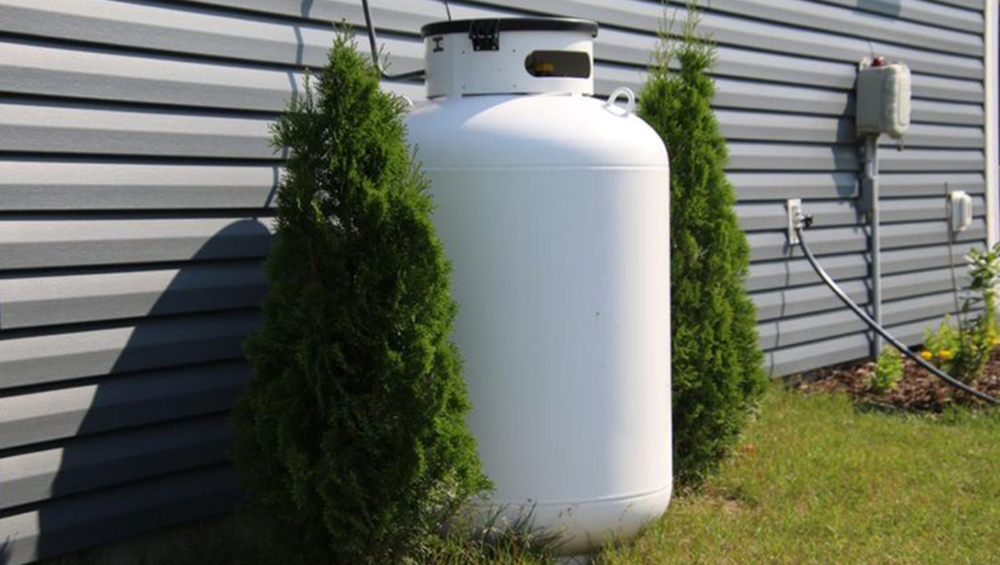Why Is My Propane Tank Freezing?
When it comes to using propane for heating or cooking, one common concern that often arises is whether propane gas can freeze at extreme temperatures. This blog discusses propane tank freezing point, why propane tanks freeze, and tips to prevent such occurrences.

Can Propane Gas Freeze?
Propane does not freeze at a specific temperature. Instead, it transitions from a gas state to a liquid state when its temperature drops below its boiling point, which is approximately -44 degrees Fahrenheit. This temperature is significantly lower than the freezing point of water, making propane suitable for outdoor use even in cold climates.
Propane’s Freezing Point
Propane remains in a gaseous state under normal atmospheric conditions. However, it is pressurized when contained in a propane tank, which allows it to stay in its liquid form at room temperature. The pressure in the tank keeps the propane molecules tightly packed together, preventing them from escaping into the atmosphere.
If the temperature drops significantly during extremely cold weather conditions, the propane in the tank may start to vaporize more slowly. This can lead to reduced pressure inside the tank and potentially cause issues with the performance of propane-powered appliances.
Why Is My Propane Tank Freezing?
Several factors can contribute to a propane tanks freezing:
- Low Temperatures
When propane tanks are exposed to extremely low temperatures, the propane inside the tank can cool down, which reduces its pressure. This results in difficulties in maintaining a consistent flow of gas to appliances.
- Moisture Accumulation
Moisture can enter the propane. In cold weather, this moisture can freeze on the surface of the tank, affecting its performance.
- Insufficient Gas Supply
In areas where propane delivery services are limited, homeowners may run out of propane during cold climates, leading to freezing issues as the remaining gas vaporizes.
Tips to Prevent Propane Tank Freezing
To avoid freezing and ensure the smooth operation of your propane tanks and appliances, consider the following tips:
- Regular Maintenance: Schedule regular maintenance checks for your propane tanks and appliances, especially before the cold weather arrives. This ensures that everything is in good working condition.
- Insulation: Properly insulate your propane tanks to minimize heat loss and protect against extreme cold temperatures.
- Keep Tank Full: Keep your propane tanks sufficiently filled, especially during the winter months, to prevent the formation of ice due to low gas levels.
- Ventilation: Ensure proper ventilation around your propane tanks to prevent moisture buildup, which can contribute to freezing issues.
- Use Propane Accessories: Utilize accessories such as heating pads designed specifically for propane tanks to help maintain optimal operating temperatures.
Finding Reliable Propane Services Near You
When it comes to propane services, finding a reliable provider is crucial. Whether you’re searching for “propane delivery near me” or “propane companies near me” consider factors such as reliability, customer reviews, and service offerings.
Propane suppliers offer a range of services, such as propane tanks sales, installations, regular deliveries, and maintenance. Whether you need a 500-gallon propane tank for commercial use or a 100 lb propane tank for residential purposes, reputable companies can cater to your specific needs.
Conclusion
While propane itself does not freeze, certain weather conditions can lead to freezing issues with propane tanks. By understanding propane’s properties and taking preventive measures, you can ensure a smooth experience with your propane tank, even in cold weather.


